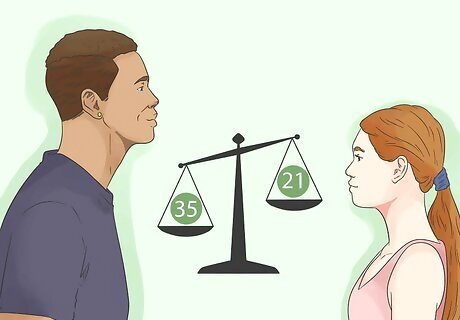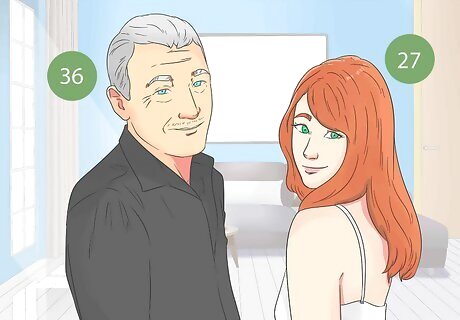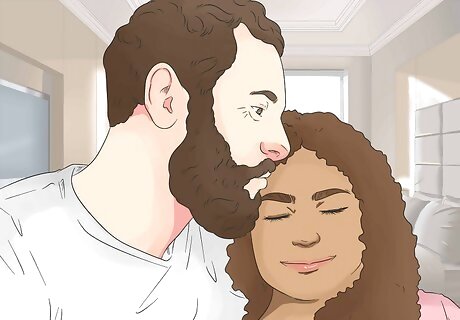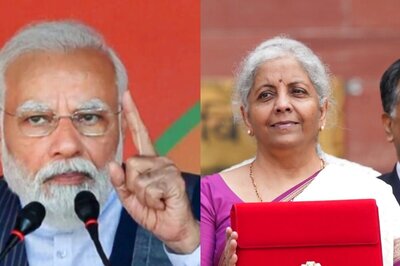
views
What is an acceptable age difference?

Five to seven years is generally an acceptable age difference. However, there’s no single right answer here, as it depends on the situation. As long as both partners are consenting adults, there’s nothing preventing you from dating someone significantly older or younger than you are. What’s more important than age is your connection with the other person. That said, relationships in which one person is much older than the other can be judged by those around you, and that can be tough to deal with. So, is a 10-year age difference too much? Is a 15-year age difference too much? Not necessarily. If you and your partner have shared interests and similar goals, treat each other with kindness and respect, and enjoy your relationship, then don’t let age get in the way of things!

Large age gaps are more acceptable if both parties are older. If one person in the relationship is pretty young, people tend to disapprove. They might think that the older person is taking advantage of the younger person, or that the younger person is in the relationship to get something from the older person—usually money or status. Can a 25-year-old date an 18-year-old? Legally, yes, but it might not be the best idea. You’re at pretty different stages in your life, which would make things difficult long-term. Additionally, if one person is younger than their mid-20s, their prefrontal cortex isn’t fully developed, and that’s the part of the brain that controls impulses and rational thinking. Is it OK for an older woman to date a younger man? Yes! It’s more common to see older men with younger women, but that doesn’t mean that older women can’t date younger men. You might have to deal with some less-than-ideal labeling (i.e. “cougar”), but there’s nothing wrong with dating a younger guy.

It’s unacceptable—and usually illegal—to date a minor if you’re an adult. There are laws in place to protect children from sexual exploitation, and dating someone under the age of 18 if you’re older than 18 can result in pretty severe consequences. Large age gaps in teen relationships could be bad for the younger person, as well. For instance, a study showed that younger females with older partners were much more likely to engage in sexual intercourse than young females dating someone closer to their own age, which increases their risk of sexually transmitted infections as well as pregnancy. In the U.S., the age of consent (when a person can legally consent to sex) is between 16 and 18, depending on the state. Each state also defines a minimum age—ranging from 10 to 18—which prevents a person from legally consenting to sex if they are at or below that age. Some states also impose an age differential, which is the maximum age difference legally allowed between the two parties if one is younger than the age of consent but older than the minimum age. The age difference ranges from 2 to 5 years, depending on the state.
What's considered a big age gap when you're dating?

An age gap of 10 years or more is considered a big difference. When one person has a decade more life experience than their partner, the couple might be incompatible. You’re likely to have different circles of friends, different interests, and different life goals.
Can dating with a big age gap cause problems?

A big age gap can cause problems, but it doesn’t have to. If you and your partner are at different stages in your lives, it can be tough to make things work. You may have less in common with someone much younger or older than you are. A study published in the Journal of Population Economics found that the bigger the age difference, the less satisfied the couples were. However, if you’re happy in your relationship and determined to make it work, you can have a successful and long-lasting relationship with someone who isn’t close to your own age. For instance, say that you’re 20 and your partner is 35. You might be going to college and want to have an active social life. Your partner might be settled into their career and less interested in partying on the weekends. When your priorities are different, the relationship might not last. Additionally, if your friends, family, and community aren’t supportive of your relationship, your commitment to the relationship may decrease, making it less likely to succeed.
What is the rule of 7?

The rule says to date someone who is half your age plus 7 or more years. That means if you’re 36, you can date someone who is 25 or older. If you’re 42, you can date someone who is 28 or older. This dating rule is not based on science and is thought to be first published in a book in 1901. Take this advice with a grain of salt—the same book also advises men not to marry women who are older, taller, or wealthier than they are. Considering how much society has changed since the early 20th century, this dating rule probably isn’t that relevant.
How can you have a healthy relationship with a big age difference?

Treat each other with kindness and respect. To make your relationship last, you both have to be willing to put in the work. Respect each other’s opinions and boundaries, be honest with each other, and value each other for who you are. Avoid trying to change your partner and be willing to compromise.

Support each other. It’s really important to make your partner feel heard and understood. Show your partner that you care about them, validate their feelings, and value them as a person. Really listen to what they have to say, cheer them on when they succeed, and lift them up when they’re struggling.

Resolve problems constructively. Every couple is going to face problems—what matters is how you handle them. When things get heated, take some time to cool off so you don’t say or do something you’ll regret. When you’re ready to discuss the issue (and this is a must—no sweeping it under the rug), use “I” statements to explain how you feel instead of blaming your partner. Focus on the issue at hand, rather than bringing up issues from the past, and work together to find a resolution or compromise that you can both live with.


















Comments
0 comment